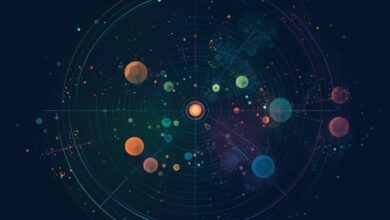AI: Good or bad? All your artificial intelligence fears, addressed

- Is AI good or bad? Does it advance human progress or risk our survival?
- Microsoft’s recent study revealed that AI showed capabilities of human reasoning.
Leading Artificial Intelligence [AI] researcher Geoffrey Hinton recently quit Google, citing concerns about the risks of artificial intelligence. He voiced his concerns that the tech might soon outperform the human brain’s information capacity. He termed some threats posed by these chatbots as “quite scary.”
Hinton argued that chatbots can learn on their own and share their expertise. This means that any new knowledge acquired by one copy is automatically distributed to the entire group. This enables chatbots to collect knowledge far beyond the capacity of any individual.
Let us dig deeper into these concerns and understand how much of these concerns are shared by the online world.
What is the level of today’s tech?
There is a general understanding that AI will most likely become super intelligent in the next few decades. But in its current state, AI is merely a tool. It has no ability to “think.” Any chatbot today just translates large amounts of data into numbers and returns the required figures. It can handle complex and ill-formed problems in disciplines such as image recognition, state space searches, model construction, and natural language processing in a reasonably consistent manner.
At the moment, an AI that interprets your language cannot predict your movements. These would be two distinct programs. Artificial intelligence, as of now, does not involve general cognitive processes. We are so far from a refined AI model as depicted in science fiction that we don’t even know what developing a highly intelligent AI entails.
At present, our existing AI models handle specific issues in specific circumstances. They are essentially just sophisticated statistical models. Although this technology is extremely effective, there is no reason to believe that we are developing a powerful general-purpose AI model.
However, a lot of money is being poured these days towards coming closer to a general-purpose AI, both in academia and in industry, but it doesn’t exist yet.
The AI of today is incapable of resolving moral quandaries. Moral issues are not rational; they are subjective and unique to the person who discusses the issue. If AI is told to kill all persons of X demography in a certain place while causing no harm to members of Y population, it will do so without hesitation.
The problem with today’s artificial intelligence
The problem with this approach is that it ignores the sole thing that limits our own intellect, the environment. The universe’s intricacy is incomprehensible. Just because we have a very specialized AI system does not imply that the AI is a specialist in everything.
There is an implicit assumption that morality is something we lose track of as we get smarter. But that is far from the case. Indeed, ethics is a common wisdom among us, though ever-evolving. It is a method of dealing with the complexities of universal problems.
AI now has huge economic incentives for development, with billions of dollars in research being spent across a wide range of applications by both private and public organizations. This way, we can say that ruling out quick progress in the next few decades would be foolish.
However, most industries are currently focused on compartmentalized AI, which involves combining numerous separate AIs that each does a certain task very well.
The main question – AI: Good or bad?
The development of AI is frequently viewed as both a threat and an opportunity for humans, depending on a variety of circumstances.
On the one hand, there are concerns about the possible hazards of AI. These include employment displacement, privacy and security concerns, algorithm biases, and the concentration of power in the hands of a few individuals/organizations. These risks, if not appropriately handled, might have severe effects for people, society, and humanity’s general well-being.
Even so, one cannot discount AI’s benefits. It can increase productivity, generate innovation, advance healthcare and science, and address difficult social concerns. AI has the potential to boost human talents, automate monotonous chores, and allow us to make more informed judgements. It provides opportunities for progress in a variety of industries, including education, transportation, agriculture, and others.
The aim is to create and deploy AI in a responsible and ethical manner. We can maximize the good impact of AI while minimizing possible hazards by addressing concerns such as transparency, accountability, justice, and prejudice. It requires collaboration among researchers, policymakers, and industry leaders to ensure that AI is developed and used in ways that align with human values and benefit society.





